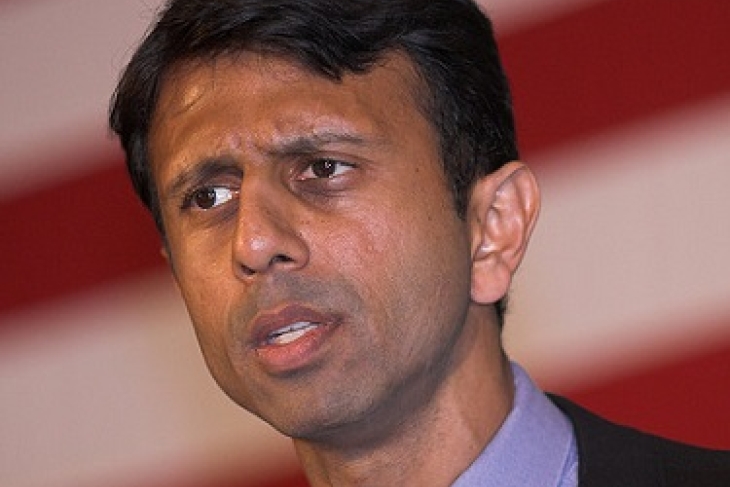I’d like to see Bobby Jindal use a teleprompter the next time he attacks Common Core. I’d like to be reassured he knows how to read.
Jindal continued his full-throated and disingenuous attack on Common Core for the benefit of the base at the Conservative Political Action Conference (CPAC) last week. “The federal government has no right imposing curriculum,” he noted, “when these decisions have always been made by local parents, by teachers, by local leaders.” Needless to say (unless you’re saying it to the governor of Louisiana), Common Core comes nowhere near imposing curriculum; this the cynical Jindal surely knows—or at least would know if he actually took the time to read the standards.
Jindal was the worst offender, but not the only one. At CPAC, Marco Rubio invoked the prospect under Common Core of “a national school board that imposes a national curriculum on the whole country.” What curriculum, Senator?
Even National Review, no bastion of squishy liberalism, cringed at a CPAC panel on the standards, describing it as “a badly missed opportunity to educate conservatives about how Common Core has created tension between small-government principles and the priorities of one of the most successful right-of-center movements of the past couple decades, education reform.” As NRO’s Patrick Brennan noted,
The moderator focused one of her questions on the idea that one of the biggest problems with Common Core has been its “content,” listing sex education, evolution, and U.S. history as flashpoints. This is straight-up misinformation—Common Core is a set of standards that doesn’t have “content” per se, since it’s not a curriculum. And it has nothing to do with sex ed, evolution, and biology, or U.S. history—it contains math and English standards, no more. The panelist who answered this question did nothing to correct the misimpression (though Neal McCluskey of Cato, one of the panelists, mentioned later that, yes, sex ed is not in Common Core).
McCluskey might want to mention that to CPAC straw poll winner Rand Paul, who has yet to walk back an embarrassing fundraising email from his political action committee claiming the standards contain “anti-American propaganda [and] revisionist history that ignores the faith of our Founders.” Again, the standards are limited to ELA and math, and the only prescribed texts are foundational documents and a single work of Shakespeare. Is the Declaration of Independence the anti-American propaganda Senator Paul is exercised about?
The CPAC vaudeville show on Common Core is particularly troubling, because when they weren’t demagoguing the standards, the men who would be the GOP’s nominee had much of value to say on education. Jindal’s stance on school choice is admirable and important. Rubio is particularly strong on paths to prosperity other than college. But both men run the risk of looking foolish—and making opposition researchers’ work easy—with an ever-growing list of demonstrably false statements about Common Core that even a cursory glance at the standards would show are simply not true. Other would-be standard bearers like Chris Christie and Scott Walker run the risk of looking equally ridiculous by bending over backwards to repudiate their past support of Common Core. “Their explanations for their flip-flops border on the absurd,” wrote Campbell Brown in the Washington Post, neatly summing up the potential price to be paid down the road for the winner of Republicans’ Who Hates Common Core Most?
“Education never quite gets the attention it deserves in presidential campaigns, but monster flip-flops surely do. So here’s some advice for people running for office: If you want to campaign against core standards, perhaps you should try having core standards of your own first,” Campbell wrote.
An intellectually honest case can be made against Common Core and the proper role of the federal government in education without resorting to easily checkable misstatements and playing conservative voters for fools.




